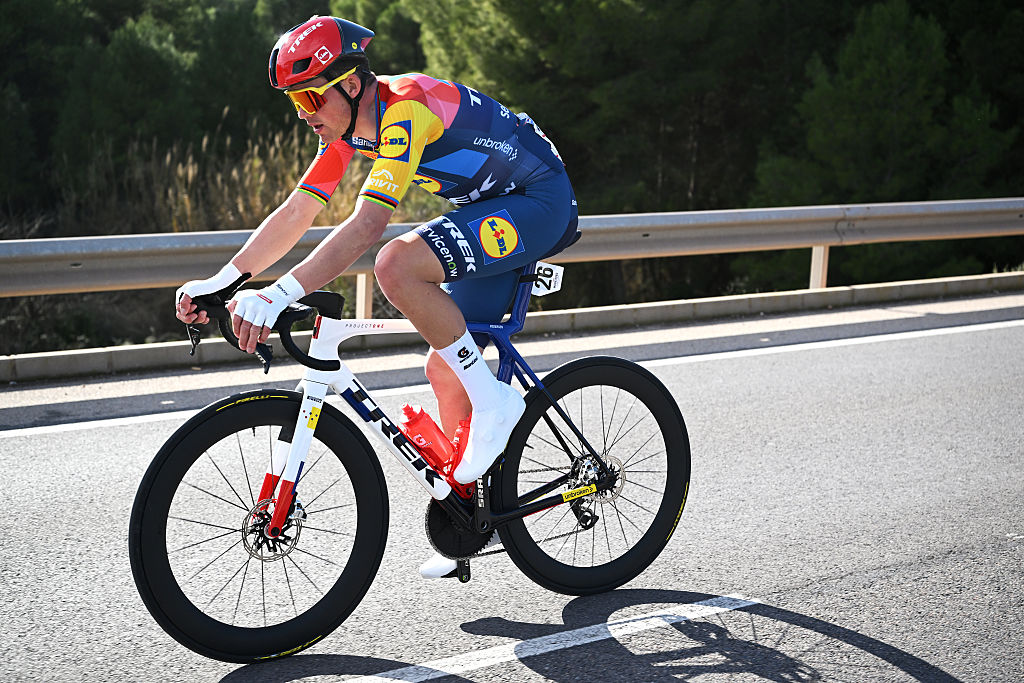Popularity adds up for Cervélo's boss Vroomen
Gerard Vroomen, the co-owner of bicycle manufacturer and team sponsor, Cervélo, considers the Test Team's Tour de France a success based on the positive press the team received. Winning? That's secondary.
The latest race content, interviews, features, reviews and expert buying guides, direct to your inbox!
You are now subscribed
Your newsletter sign-up was successful
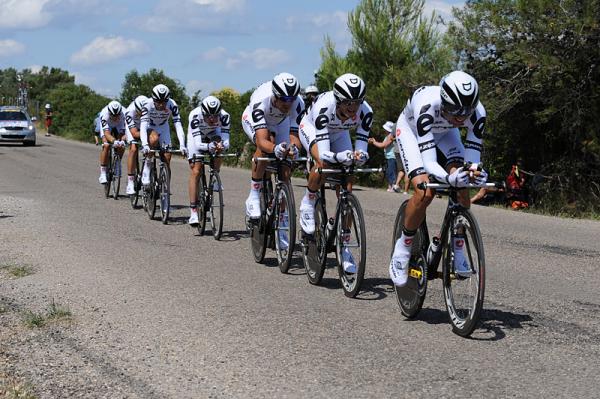
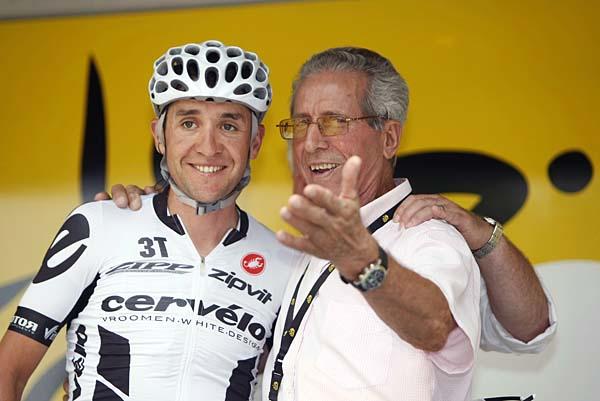
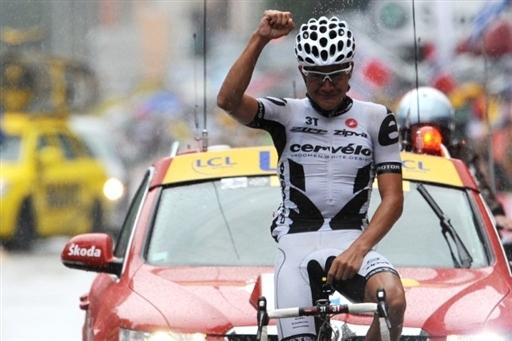
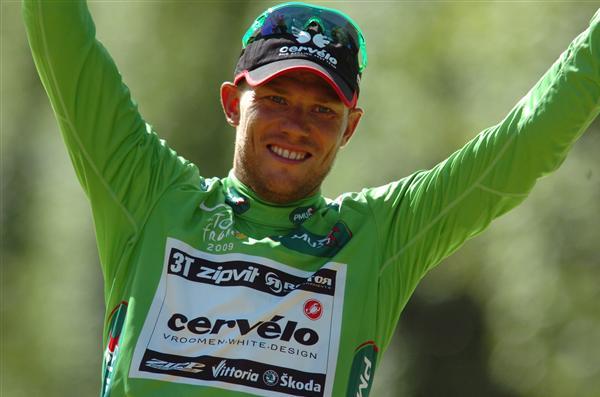
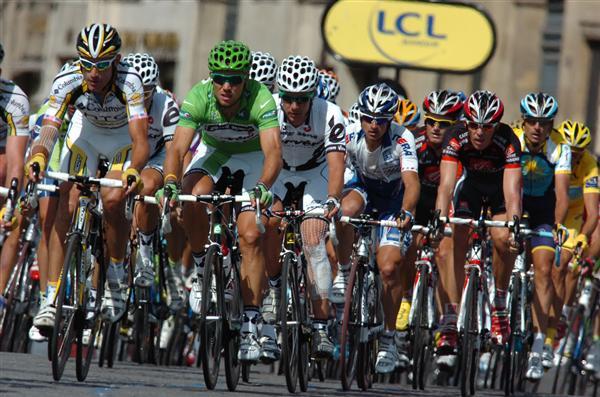
Cyclingnews: Your first Tour de France as the head of a competing team and not just a bike sponsor has just finished. What are you general thoughts on the racing you've seen over the last three weeks?
Gerard Vroomen: It's was an interesting Tour. I don't think it was as boring as people said but it wasn't the most interesting either. Perhaps the race for the green jersey was more exciting than the race for the yellow. When it came to the race for yellow I think that some people were on a different planet, so the racing was obviously very hard for the last couple of days and before that it was a long waiting game.
CN: What were been the factors in determining how exciting the Tour has been?
GV: It all comes down to the riders. I noticed a lot of talk over the course being designed so that it's exciting towards the end, but I don't think you can sit down in July or August, nearly a year in advance, and draw up a course that makes sure that you can have three guys separated by eight seconds coming into the last two stages.
You just have to be a bit lucky there. Obviously the Andorra stage wasn't quite as difficult enough so the overall classification stayed together for the last week. Course design has something to do with it, but in the end it's the riders who make the race.
CN: And your riders, how would you assess their performances during this year's Tour?
GV: That's actually a difficult question. I think for a first year team if you win a stage then you should be pretty happy, but we've won two and Thor [Hushovd] has taken the points jersey.
The latest race content, interviews, features, reviews and expert buying guides, direct to your inbox!
More importantly the way we won the two stages has been crucial. What [Heinrich] Haussler did for example was talked about for a long time after he won, and Thor's big mountain break, well, that hasn't happened in a long time.
Even with Carlos [Sastre], the outside world might say that the he didn't perform up to the standard but I think he did. He raced to his maximum, and that's all we want to achieve, we want to support him, but in the end if there's one guy or ten guys who've found a way to be faster than him then c'est la vie.
Carlos, in my opinion, is at about the same level as last year. It would appear that the other riders are better.
CN: So signing a Tour winner who isn't in the top ten this year isn't a failure?
GV: We said last year, if you want to win the Tour it's not that difficult, it's clear which teams you need to sponsor to have an 80% chance of winning the race, but that's not very exciting; it's just a game of who has the biggest pay check or sponsorship check. It's more exciting to have riders like Carlos and Thor. To do something new is more exciting.
CN: Carlos was successful at the Giro, certainly more successful that at the Tour, winning two stages and finishing top five. Did he peak too soon?
GV: No. I think he's stronger here than in the Giro. The Giro was great for us. We had four stage wins and third overall now, after that idiot [Danilo Di Luca] got busted, so it was a dream start for our first Grand Tour. A big learning curve for us, too.
We went there with three experienced riders and six young riders, so to win four stages and arrive in Rome with all nine riders was much better than expected.
CN: You mention Di Luca. How much did it play on your mind that cycling has its problems with drugs when you entered the sport as a title sponsor? Did you think it was a risk?
GV: It's was one of the reasons to start our own team. Yeah, we don't have full control over the riders, but we have more now. We can tell them what we want and we know that when we leave the room there's not a different message coming through.
We know that we determine what the mission of the team is. That starts with trying to choose the right riders and knowing that you don't know everything but a rider like Di Luca, if you want to have serious attempt to have a clean team then you don't hire him so those are easy choices to make.
Of course it's always possible that you make mistakes with [signing] someone, but we've done a good job with picking our twenty five riders and it's a constant job of reinforcing what we like to see and that the winning isn't that important for us. Our riders understand that and live with that philosophy. Sometimes that's the big problem, if you're just a bike sponsor of a team.
It's not so much that we can prevent everything, but if something was to happen we can take action and if you're a sponsor and not an owner of a cycling team then you have to watch as the team handles it.
Some teams will handle it well and other teams just protect the rider, going through ridiculous excuses, basically telling the cycling fans that they are idiots, making up the most retarded stories and getting away with it. I don't think we'd consider keeping someone if we were in that situation.
It's been made so clear that if a rider still didn't understand the message then we'd never get through to the rider.
CN: During Carlos' second rest day press conference he hit out at the media for focusing too much on the Armstrong-Contador rivalry and not giving him, the defending champion, the respect he deserved. Did you agree with that?
GV: I'm not sure that's quite what he said but there were a couple of things. Firstly he wasn't allowed to start in the yellow jersey in Monaco. Also there wasn't a photo of him in the whole Tour guide book. It's those little things that show a lack of respect.
What he was saying was that Contador and Armstrong, as if there was no [Brad] Wiggins or [Tony] Martin stories.
I think he has a point - that it's unhealthy for cycling to focus on such a narrow section of the sport and I think the point he commented on that I agree with is, if the media can't get quotes from Armstrong or Contador anymore, they go to Carlos Sastre and don't ask how his race is going but what he thinks about the feud. That's a little bit much. That's a bit disrespectful.
CN: Can Carlos come back and win the Tour again? Considering the level of the opposition and his performance, that might be a hard task.
GV: He doesn't have to. The first Tour win didn't change him or us, and the second one wouldn't either. Whether he can win the Tour next year depends on the other riders and the organisation who determine the route. They stick a couple of 80K time trials in and it's going to be difficult.
In general we have to see how cycling develops in the next twelve months. Look at last year for a second. It was fantastic Tour. It was the first time we saw a sports event damaging itself in the short term to create something better long term.
CN: That sounds a little blurry. Can you elaborate on that?
GV: I'm talking about catching people during the event and doing a test for a product they thought was safe [CERA - ed.]. It's never happened before.
I don't know if this year is cleaner. Last year there were positive tests during the Tour and then the same type of test had positive tests months later.
Of course the testing is done by a different organisation this year so I don't know what effect that has. It's cleaner now than where it was five years ago. There are more teams that strive very hard to race cleanly, but 100 per cent clean cycling will happen the day we have no more bankers embezzling money. Part of society is that there will always be cheats.
It's good to be involved in cycling where at least you can take it more seriously than sports like baseball, track and field or soccer and so it's good that those strides have been made, but to compare this year to last year, I don't know.
The two guys who did things were unbelievable last year. [Riccardo] Ricco, who really did something you thought, 'god that wasn't possible', and Kohl who was an average rider who finished third and you thought it was kinda weird and it turns out it was kinda weird. Time will tell on this Tour de France.
CN: You mentioned Haussler's win. He had two quiet seasons with Gerlosteiner but started his career with a bang. How much was it a gamble to sign him and what your recruitment policy?
GV: It wasn't a gamble at all. All the riders we signings we make are based on three criteria, racing ability, personality, and their interest in helping us with product development. Okay, the racing ability is difficult to assess, but you can assess that Henrich is a guy that fans want to talk to and he's the guy that will talk back and relish the opportunity. He's also interested in products so it's not a gamble that we already knew that two thirds of the job was done.
You can sign Contador to win the Tour, he can crash in May and miss the race. Then what do you have? So it wasn't much of a gamble as the race performances are a bonus.
CN: So is personality and marketability of a ride are more important than just results?
GV: For me, yes it is. You have some riders who win a lot of stages and everyone thinks they're an ass, and you have others that don't win as much and are genuinely liked. I think personality is hugely important.
You have plenty of riders in the peloton that win a lot but are considered boring. Heinrich Haussler will never be considered boring. He's exciting. He gives you a good feeling to be around and that kind of positive energy is good for the team and the fans.
Maybe it's more obvious to us than other teams because we're very closely associated to fans because we're a bike company but we know there are riders who might win races for you but won't sell you any extra bikes because they're not liked or not loved, whatever you want to call it.
CN: Other than Haussler can you give us another example of this within the peloton?
GV: The most popular rider in Australia is probably Stuart O'Grady. He's not the guy with the biggest palmares. It shows that it's more than just winning races doesn't determine your relevance.
If Carlos wins the Tour or comes tenth it makes no difference to our customer. Obviously you get more exposure if you're first, but when the guy who is first crosses the line, it's Contador from Team Astana or Shleck from Saxo Bank, but I don't know what bike they ride but Thor is in a break for three hours, and it's Thor from Cervelo Test Team.
He probably finished 110th but who cares, right?
"You have some riders who win a lot of stages and everyone thinks they're an ass, and you have others that don't win as much and are genuinely liked. I think personality is hugely important."
Gerard Vroomen on how popularity counts in cycling.
Daniel Benson was the Editor in Chief at Cyclingnews.com between 2008 and 2022. Based in the UK, he joined the Cyclingnews team in 2008 as the site's first UK-based Managing Editor. In that time, he reported on over a dozen editions of the Tour de France, several World Championships, the Tour Down Under, Spring Classics, and the London 2012 Olympic Games. With the help of the excellent editorial team, he ran the coverage on Cyclingnews and has interviewed leading figures in the sport including UCI Presidents and Tour de France winners.

